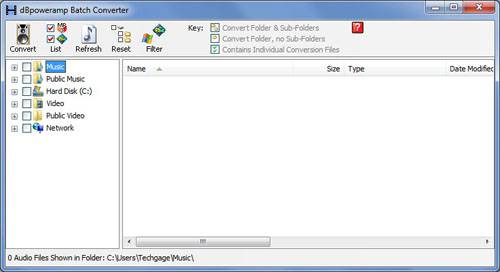- Qualcomm Launches Snapdragon 4 Gen 2 Mobile Platform
- AMD Launches Ryzen PRO 7000 Series Mobile & Desktop Platform
- Intel Launches Sleek Single-Slot Arc Pro A60 Workstation Graphics Card
- NVIDIA Announces Latest Ada Lovelace Additions: GeForce RTX 4060 Ti & RTX 4060
- Maxon Redshift With AMD Radeon GPU Rendering Support Now Available
Corsair Neutron GTX 240GB SSD Review

It’s the attack of the SandForce clones! Can any heroic atomic-powered SSD come to save us? Does Corsair’s Neutron have what it takes to rescue our PC in distress? Will the hordes of the positively-charged solid-state armies be neutralized in time? Tune in this week (or now) to find out!
Page 7 – Real-World: File Transfers, dBpoweramp R14
Finally, we reach the first of our real-world tests where there are no unusual testing or scoring algorithms to leave us scratching our heads, just simple tests to see how an SSD changes actual system performance.
For the File Transfer test we took a 4.5GB compressed archive and measured how much time was required to transfer the file to another folder on the same drive. Keep in mind that with a hard disk, this requires the actuator arm to seek back and forth between the source and destination sectors on the disk platter, with the destination sectors often not sequentially aligned. In contrast, any SSD can concurrently perform read and write operations simultaneously on any NAND chip without regard to spatial considerations of bits strewn randomly around a disk platter, which gives them a large advantage here.

In line with the chart-topping sequential results we saw in Iometer, it stands to reason the Neutron is able to deliver the second best transfer time we have seen to date.
dBpoweramp R14
Either you’ve heard of FLAC, or it is an integral part of your digital life. But iTunes and Apple devices do not support FLAC files, leaving those with discerning ears forced to use Apple’s Lossless codec. dBpoweramp makes it possible to convert between them utilizing as many threads as are available to the system.
In this test, we take 10 albums amounting to 4GB of FLAC files and convert them to Apple’s lossless format. This creates exactly 3.96GB of new data. This scenario is even more applicable for those users with six or more physical CPU cores available, because as the core count increases, the more the storage system will become the actual bottleneck. Our test rig is limited to only a quad-core processor, but even then we can see clear differences amongst the various contenders.

Corsair’s atomic-named SSD delivers the best result we have seen in dBpoweramp so far, shaving two seconds off the Vector’s already impressive time.
Support our efforts! With ad revenue at an all-time low for written websites, we're relying more than ever on reader support to help us continue putting so much effort into this type of content. You can support us by becoming a Patron, or by using our Amazon shopping affiliate links listed through our articles. Thanks for your support!





